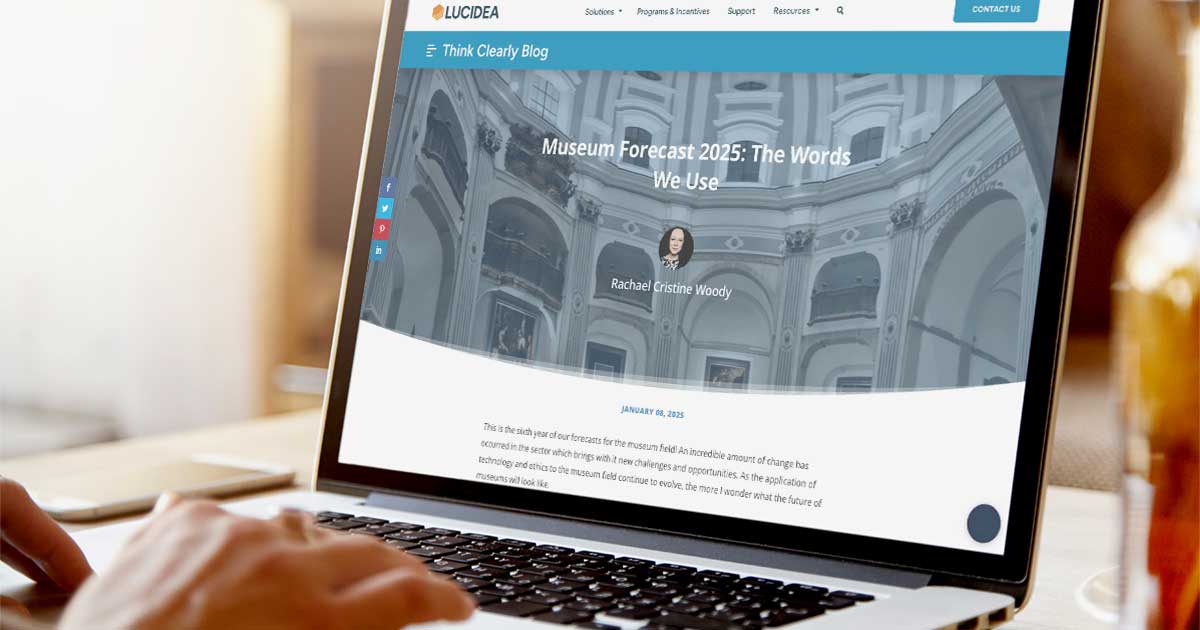Inmagic Presto Success Story
Small Library; Big Impact; Exciting Plans
 The American Physical Therapy Association manages a collection of ~15,000 print resources and it’s critical that the Knowledge Services team leverage technology as they digitize the entire library collection and moving all subscriptions to electronic/document delivery.
The American Physical Therapy Association manages a collection of ~15,000 print resources and it’s critical that the Knowledge Services team leverage technology as they digitize the entire library collection and moving all subscriptions to electronic/document delivery.“A professional librarian with a small staff knows how things should be done, and what others are doing, but you seldom have the resources or time that others have. Presto is the kind of tool that elevates the library to a new level… making it possible to do things even with a small staff and small budget that really have a big impact.”
MEGAN SMITH
Knowledge Services Manager
APTA
APTA Challenges, Inmagic Presto Solutions

Eliminate cataloging backlog and improve accuracy with data import and batch modify

Centralized access to all APTA knowledge resources, internal and external

Taxonomic search and navigation in tandem with crowdsourced tagging
Small staff, large library results
Just two of those employees are responsible for providing reference and library services to APTA staff, members, and occasionally the general public while managing a collection of ~15,000 print resources including books, research reports, journal articles and archival materials. With a goal of digitizing the entire library collection and moving all subscriptions to electronic/document delivery, it’s critical that the Knowledge Services team leverage technology to deliver big impact and operational efficiency.
Limited and locked away
Per Megan Smith, APTA’s Knowledge Services Manager, they always had an online library catalog, but it was really just a tool for librarians and was used primarily for acquisitions and administrative tasks. APTA staff outside the department didn’t find it useful or relevant because it didn’t provide comprehensive access to the full collection of internal and external resources. In addition, two staff members simply couldn’t keep up with cataloging the amount of material relevant to APTA research, and as a result there was an enormous backlog of important yet inaccessible material.
Significant progress
When they implemented Presto, it truly was a “game changer.” The ability to import data and eliminate the need for manual cataloging has allowed Ms. Smith and her colleague to eliminate the backlog and make their content accessible to APTA staff. Internal information sources documented in the system increased by 520% in the first four months of implementation. Here’s one example of how they achieved that: all journals and many books produced by the APTA and its various chapters/sections are indexed by NLM Medline. The information is publicly available, and with Presto’s importing functionality, it’s easy to get that critical content into the catalog, and the data is free. Sta can now access materials never before accessible, such as APTA journals from 1921 through 2014. Knowledge Services is responsible for pushing information to APTA staff, for curating collections of information, and for doing literature searches. They use many different tools, both free and purchased, and with Presto, they can centralize access to all of those tools and content resources in one platform. This benefits both library staff and end users, who’ll be able to access Presto as a “one-stop-shop.” In addition, the several different collaboration channels such as discussion forums currently used by APTA library staff will ultimately be phased out in favor of Presto’s knowledge sharing capabilities, supplementing the internal and third party content collection.
Meaningful interaction
One of the Presto benefits that is valued at APTA is the ability to “interact with the content in a meaningful way” once it is in the system. They are excited about the social capabilities that will allow APTA staff to tag, rate and comment on items in the collection—Ms. Smith refers to it as “social cataloging,” and although they are working to build a taxonomy and will formally assign metadata that makes sense for their content and allows them to take full advantage of faceted navigation, they will use crowdsourced tagging as well. They are also doing a lot with relating the information, including links to related resources, the source document, or the full text. Per Ms. Smith, “What you want from a KM system is for it to show the relationships between people and resources, and make connections for your users.”
It’s not a problem, it’s an opportunity
Ms. Smith told us that as she uses Presto, she finds more and more things she can do with it; working with the system is “inspiring” and delivers epiphanies on a regular basis—and she can quickly and easily solve problems. For example, they had a ten-year-old database of extractions of research articles which APTA members had evaluated and abstracted. It was built on old technology and about to be decommissioned, and they were in danger of losing access to ten years’ worth of work. With help from APTA’s IT staff and Presto, they extracted all the data from the original database and developed a new “Hooked on Evidence” database in Presto, retaining all the original functionality, and adding features such as being able to search and filter via new fields, linking to the original articles, and attaching PDFs with graphs and charts.
Big impact, exciting plans
The ability to easily and quickly configure Presto without placing demands on the IT department is another game changing benefit. This is especially important, because Ms. Smith has big plans for the system in the years to come. For example, in the next couple of years they will work with APTA staff to locate and digitize core association documents, and will set up a work ow for getting materials yet to be created into Presto – ideally resulting in staff doing their own input, further freeing library staff and contractors to spend time working on strategic projects rather than on data entry. APTA leaders have recently made an association KM system a strategic priority. Having the Presto solution already in place positions the association very well to achieve its strategic objectives. With physical therapists developing clinical resources; lobbyists and lawyers who evaluate legislation; government and regulatory a airs experts; payment and insurance specialists; communications and publication relations professionals; and an education department, APTA generates a huge volume of valuable content. Presto enables two Knowledge Services staff to cost effectively deliver serious impact and support the association’s goal of fostering advancements in physical therapy practice, research, and education.
More Inmagic Presto Success Stories
Inmagic Presto Success Stories
Request an Inmagic Presto Demo










